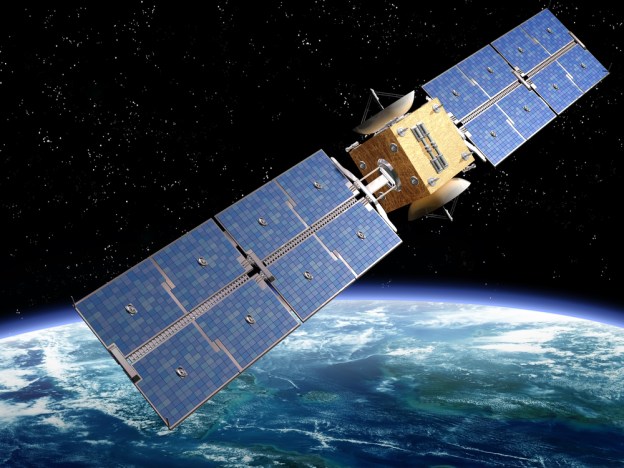
In 2007 and 2008, hackers waged an attack on two US government satellites, according to a report from a congressional committee that’s due to be released next month. Bloomberg Businessweek reports that the perpetrators of the attack may have ties to the Chinese military.
The two satellites, named Landsat-7 and Terra AM-1, are reportedly used for climate and terrain monitoring, and are managed by NASA.
In both October 2007 and July 2008, the Landsat-7 satellite experienced 12 minutes of interference. The Terra AM-1 experienced two minutes of interference in July 2008, and nine minutes in October 2008, according to the report.
“Such interference poses numerous potential threats, particularly if achieved against satellites with more sensitive functions,” says a draft of the report obtained by Bloomberg Businessweek. “Access to a satellite‘s controls could allow an attacker to damage or destroy the satellite. An attacker could also deny or degrade as well as forge or otherwise manipulate the satellite’s transmission.”
While the report does not explicitly implicate the Chinese government in the attacks on the satellites, it does say that the attacks are in line with Chinese government writings that support military action against enemy space systems, including “ground-based infrastructure, such as satellite control facilities.”
The report also says that the Chinese “conducted and supported a range of malicious cyber activities.”
Wang Baodong, a spokesman at the Chinese Embassy in Washington D.C., says the commission has been spreading “unproved stories to serve its purpose of vilifying China’s international image over the years. He added that China “never does anything that endangers other countries’ security interests.”
The report goes on to say that, in the event of a military conflict between the US and China, the Chinese would attempt to “compromise, disrupt, deny, degrade, deceive or destroy” US computer systems, including satellite systems.
This is, of course, far from the first time the Chinese government has been accused of hacking. Last March, for example, Google accused the Chinese government of hacking its Gmail service in an attempt to suppress anti-government activists in that country.
[Image via Paul Fleet/Shutterstock]


